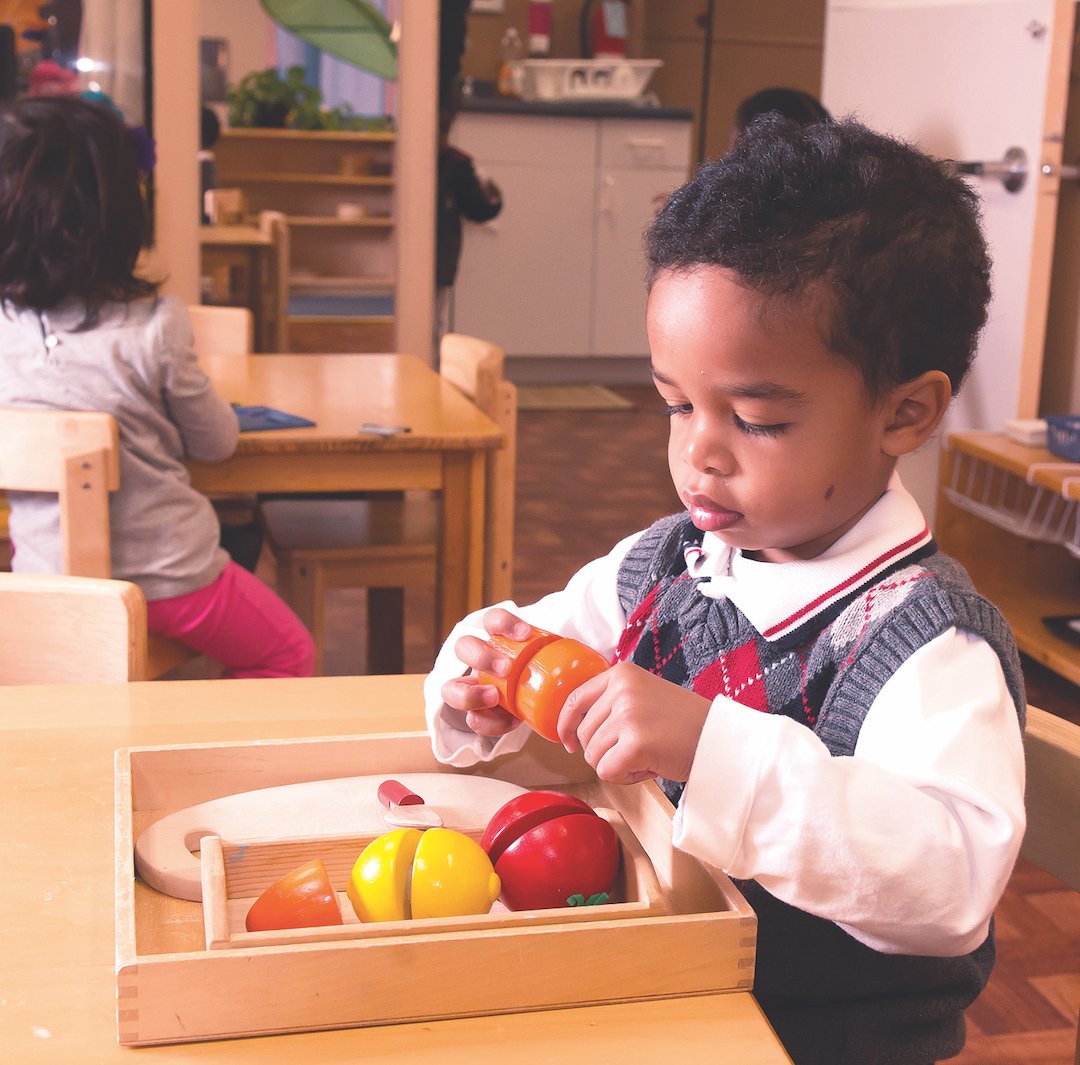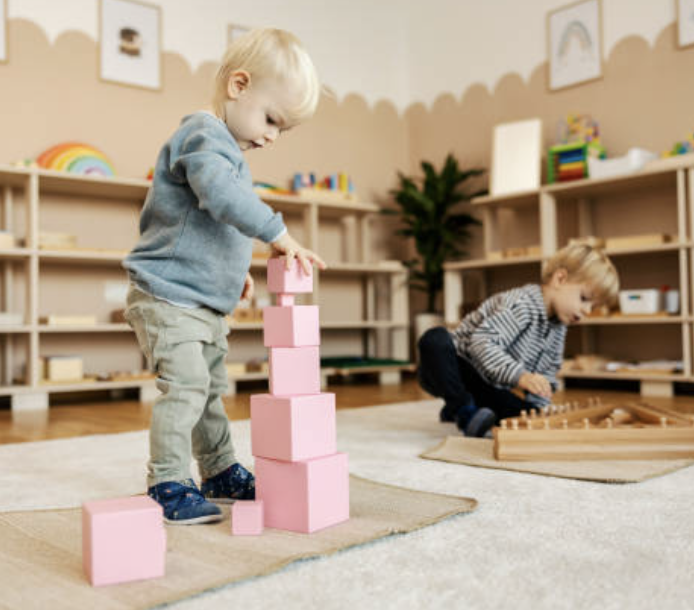Toddler: 18-36 Months*

The first two years of life are the most important. Observation proves that small children are endowed with special psychic powers, and points to new ways of drawing them out—literally “educating by cooperating with nature.” So here begins the new path, wherein it will not be the professor who teaches the child, but the child who teaches the professor.
Maria Montessori
The toddler develops independence, movement, language, and even happiness in the first years of life! Some people think that children this young (18 months) are not as interesting to teach, interact with, or observe. Research shows that the first three years of life are the most important in forming a child’s emotional base, intelligence, social skills, and many other aspects of being human.
Our Toddler program starts at 18 months, in which the children are immersed in a respectful, loving, and understanding environment. The experienced staff meets each child's emotional, social, physical development, and psychological needs. We follow the Montessori philosophy, which encourages each child's independence, language development, and self-confidence.
If you are searching for a childcare center for your young child that is more than just a daycare, our Toddler Community is for you!
Supporting Movement We support movement in very young children by creating an open space of beauty, adorned with child-proportioned furniture and activities. The adults are brought to the child's level, never the other way around. This gives the young child more opportunity to exercise their growing body and to achieve milestones. You will not see common hindrances to movement such as high chairs, cribs, walkers, play gyms, or swings. Children creep, crawl, and then walk freely toward enticing, naturally-made objects and activities appropriate to their developmental interest.
Supporting Self-Discipline Opportunities for the young child to develop self-discipline are found throughout a Montessori Toddler environment. We have child-sized materials for children to clean up after themselves and countless opportunities to make choices. Our teachers are trained to set appropriate, respectful limits to keep the children safe and calm. We let the children develop socially in a natural way. We do not praise, but rather encourage. We do not force sharing, rather we respect concentration and positive interactions with materials and encourage respect and patience. When tantrums occur, we provide a safe place for the child to process their emotions, remaining calm ourselves. We observe the cause of the tantrum and address solutions and prevention, not the tantrum itself. Often high emotions can be calmed by respectful acknowledgment of a child's feelings. This can be done without "giving in" to their tantrum, but rather by validation of strong feelings.
Supporting Communication Though still learning to form sounds and words, toddlers do communicate with their voice and their body. We, as Montessori educators, are keenly aware of signs of communication. We use language as much as possible when working with young children. When a child needs to be lifted, moved, or soothed, we explain ourselves verbally as well as act physically. This level of respect is a pillar of being in a Montessori environment. At around 18 months, there is typically a language explosion. This is met with offering the child new vocabulary and more opportunities to communicate.
Supporting Independence We support your child's independence through working, dressing, eating, sleeping, and toileting. The way this is done varies according to age. We don't rush the eating and dressing of infants. We include them in the process as much as possible. We are keenly watching for sleep indicators and routines, encouraging an eat/play/sleep routine as much as possible. When your child has more control over his/her body, dressing, eating, and toileting will be shown carefully and with patience to ensure pleasure and peace as your child reaches important milestones. We encourage the use of a toilet as young as 14 months and offer child-sized equipment to practice. Even the youngest child can concentrate on a task. This concentration is observed, respected, and uninterrupted in a Montessori Toddler environment. If we observe a toddler attempting to pour out a bucket or using the Velcro on their clothing, we will allow the child to work and try without injecting our own personality into their experience.
“Developing the right type of attachment during the symbiotic period paves the way for detachment as psychological birth happens.”





